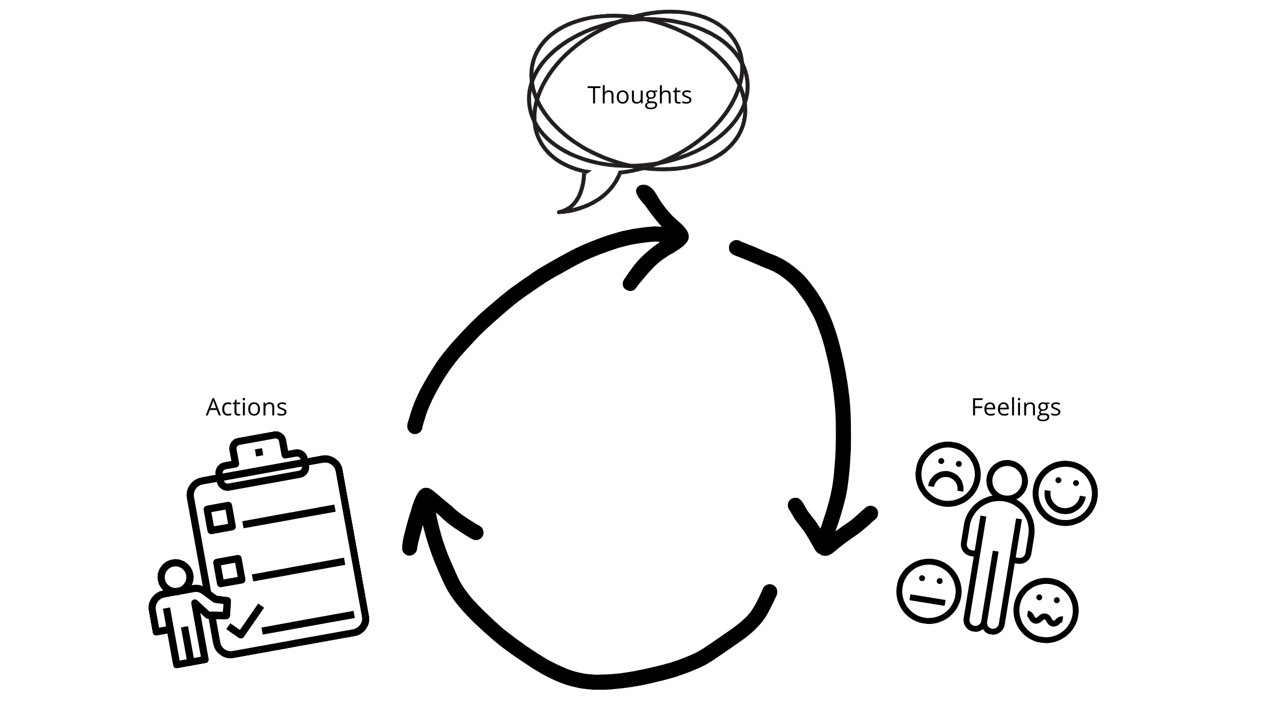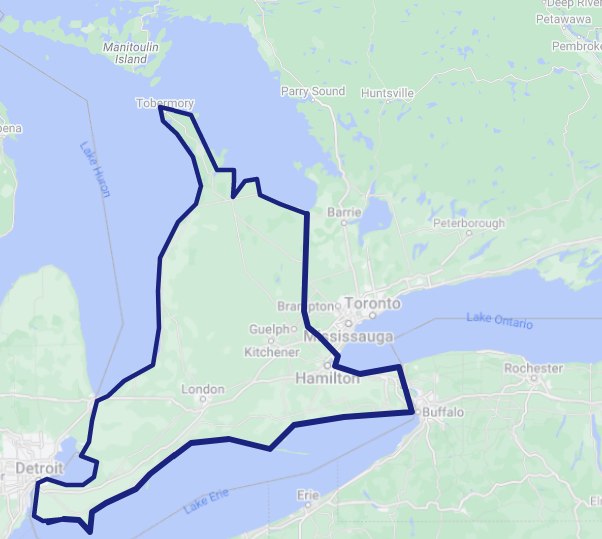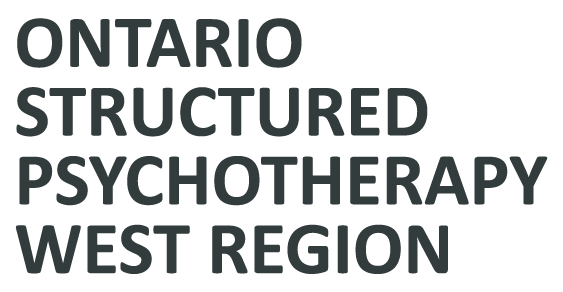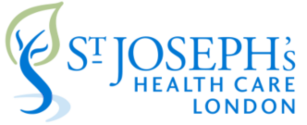Speak with your healthcare provider about your health concerns and to determine if OSP will be right for you, in which case they can submit a referral. Share this info sheet with them.
On this page, you can learn about:
- The kind of mental health concerns OSP provides support for.
- What Cognitive Behavioural Therapy is.
- The kinds of supports offered through OSP, divided into two "buckets" of services.
- What to expect during treatment.
- Where treatment is available.
What does OSP provide support for?
OSP provides support for adults with depression, anxiety, and anxiety-related concerns, including:
- Depression and low mood
- Generalized anxiety and worry
- Social anxiety and performance fears
- Unexpected panic attacks and agoraphobic fears
- Health anxiety
- Obsessive-Compulsive concerns
- Post-traumatic stress
- Specific fears
- Other anxiety and stress related problems (e.g. work stress, test anxiety)
What is Cognitive Behavioural Therapy?
Cognitive Behavioural Therapy (CBT) is a practical, short-term form of talk therapy. It helps people develop lifelong skills such as:
- how to be more aware of the impact your thoughts, attitudes, and beliefs have on your emotional and behavioural reactions
- how to identify and change thinking patterns that may be negative, inaccurate and contribute to your depression or anxiety
- how to change unhelpful behaviours such as avoidance, and
- how to use problem solving skills to manage challenging situations.
CBT focuses on the here-and-now—on the problems that come up in day-to-day life.
Using CBT, you look at how your thoughts, emotions and actions are related. You learn practical skills to reduce your symptoms, enhance your strengths, and improve your quality of life.

What kind of support can I expect from OSP?
OSP is structured to provide short-term support focused on a particular problem or goal. Long-term treatment and follow-up are not available.
We offer different treatment options to provide the level of care that best meets your needs. A trained professional will complete an assessment and recommend the treatment pathway to support your recovery. OSP is a stepped care program. This means that most people will begin with self-led resources and will move to individual or group therapy if they need more support.
OSP offers a range of services that fall within two buckets:
- Self-led resources guided by a coach or clinician. These services offer fast access, convenience, are self-paced and available online and/or by phone.
- For more information on these options:
- Read a summary of all of our self-guided, clinician-supported treatment options.
- Read about each treatment option separately: BounceBack, Tranquility, MindBeacon, and Clinician-Assisted Bibliotherapy.
- For more information on these options:
- Individual or group cognitive behavioural therapy offered in-person or virtually.
What can I expect during treatment?
Clients will take an active role in their recovery, including:
- regularly completing questionnaires to assess their mood and anxiety,
- keeping track of mood/anxiety-related thoughts and actions,
- reading about and practicing mental health strategies, and
- attending therapy meetings.
Where can I access service?
These services are available to residents in the South and West regions of Ontario, including

- Windsor Essex,
- Chatham Kent,
- Sarnia Lambton,
- Oxford,
- Elgin,
- London Middlesex,
- the Kitchener Waterloo area,
- Cambridge,
- Guelph Wellington (for a limited time, only virtual or telephone appointments are available),
- Huron Perth,
- Brantford Brant Norfolk,
- the greater Hamilton area,
- Niagara,
- Burlington, and
- Grey Bruce.
To access OSP in other areas of the province, please locate the service provider in your region by visiting the Ontario Health website.
OSP is not a crisis or emergency service. If you need immediate help, please visit the nearest emergency department or call 911. View our Immediate Help page for a list of available 24-hour crisis telephone supports.
If you are between the ages 15-17, please speak with your doctor or visit the BounceBack Ontario website for information about mental health services for youth.
Positive Results
OSP is based on a successful program in the U.K. called Improving Access to Psychological Therapies (IAPT) that has helped thousands of people in the U.K. feel better.
Key facts about IAPT’s success*:
- Over half a million people completed treatment
- More than half of people recovered
- Nearly two-thirds showed worthwhile benefits to how they felt (Jan.-March 2017)
*Source: Psychological Therapies, Annual report on the use of IAPT services 2019-20.



